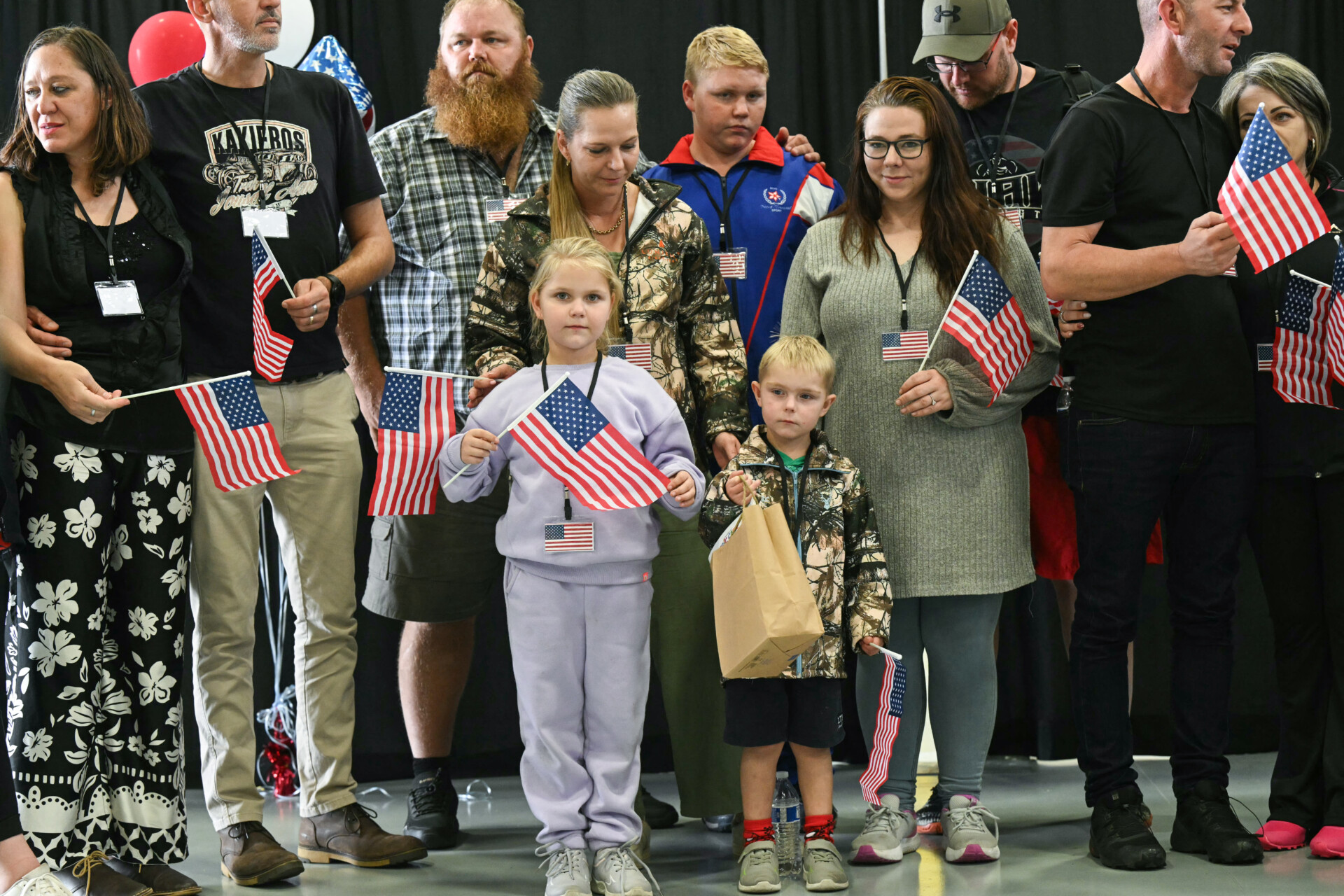General
South Africa slams US resettlement of Afrikaners as 'apartheid 2.0'
South Africa’s government has accused Washington of reviving “apartheid 2.0” after the United States rolled out a refugee programme granting white Afrikaners preferential entry, a move Pretoria insists is unjustified and racially skewed. The article discusses the recent controversy between South ...
Business Insider Africa
published: Aug 27, 2025


South Africa’s government has accused Washington of reviving “apartheid 2.0” after the United States rolled out a refugee programme granting white Afrikaners preferential entry, a move Pretoria insists is unjustified and racially skewed.
- The article discusses the recent controversy between South Africa and the U.S. surrounding a refugee program granting Afrikaners preferential entry, which Pretoria deems racially unjust.
- South Africa's Foreign Minister Ronald Lamola criticized the program, stating that it revives racial favoritism reminiscent of the apartheid era.
- The U.S. administration has justified the program claiming Afrikaners face 'discrimination' and 'genocide,' assertions strongly denied by Pretoria.
- Relations between South Africa and the U.S. have been strained due to tariffs on exports and diverging views on human rights and land reform policies.
Foreign Minister Ronald Lamola said Wednesday that the decision to single out Afrikaners descendants of Dutch settlers who once entrenched apartheid rule echoes South Africa’s painful history of racial favouritism.
“The refugee programme is preferential treatment of Afrikaners in South Africa to enter the US,” Lamola told reporters at a press briefing. “And you know, with our history… preferential treatment of a particular privileged group, the Afrikaners, who are not running away from any genocide in this country, is definitely apartheid 2.0.”
A controversial exception
In May, President Donald Trump’s administration granted Afrikaners refugee status, claiming they faced “discrimination” and even “genocide” in South Africa. Pretoria has strongly rejected those claims.
A first group of about 50 Afrikaners was flown to the US on a chartered plane in May, with others reportedly following in smaller groups.

The irony, Pretoria argues, is that Afrikaner-led governments were the architects of apartheid, which denied South Africa’s Black majority political and economic rights until democracy arrived in 1994.
While Trump has largely shut the door on refugees since taking office, Afrikaners were granted an exception, a move Pretoria says is politically motivated and ignores facts on the ground.
Strained ties with Washington
Relations between South Africa and the US have deteriorated since Trump took office. Pretoria’s ambassador was expelled in March, and Washington later imposed a 30% tariff on South African exports, a move that threatens jobs in Africa’s most industrialised economy.
“Several countries were affected by the unpredictability of the current administration in the US,” Lamola said. “We are not alone.”
Talks to ease the tariffs are ongoing, with a US Congressional team expected in Pretoria this week. But the Afrikaner refugee programme has deepened mistrust. The US is reportedly fast-tracking applications through a Christian NGO based in Kenya, sidestepping Pretoria’s involvement. “There is no obligation, no duty for the South African government to assist the US government with this refugee programme,” Lamola stressed.
The bigger picture
One of the key sticking points between both countries has been South Africa’s policies aimed at redressing apartheid’s legacy, including redistributing land still overwhelmingly in white hands and boosting Black business ownership.
“We continue to reiterate that these are matters which are firmly within the grasp of the South African people and its sovereignty,” Lamola said.
Pretoria has also pushed back against Washington’s latest Human Rights Report, which claimed South Africa’s record has worsened. To counter US claims that white farmers are being systematically targeted, Lamola cited police data showing six farm murders between January and March this year, four of the victims being Black employees or farm dwellers.
“These statistics do not reveal a pattern of action driven by inflammatory racial rhetoric against a specific community,” he said.
Read More